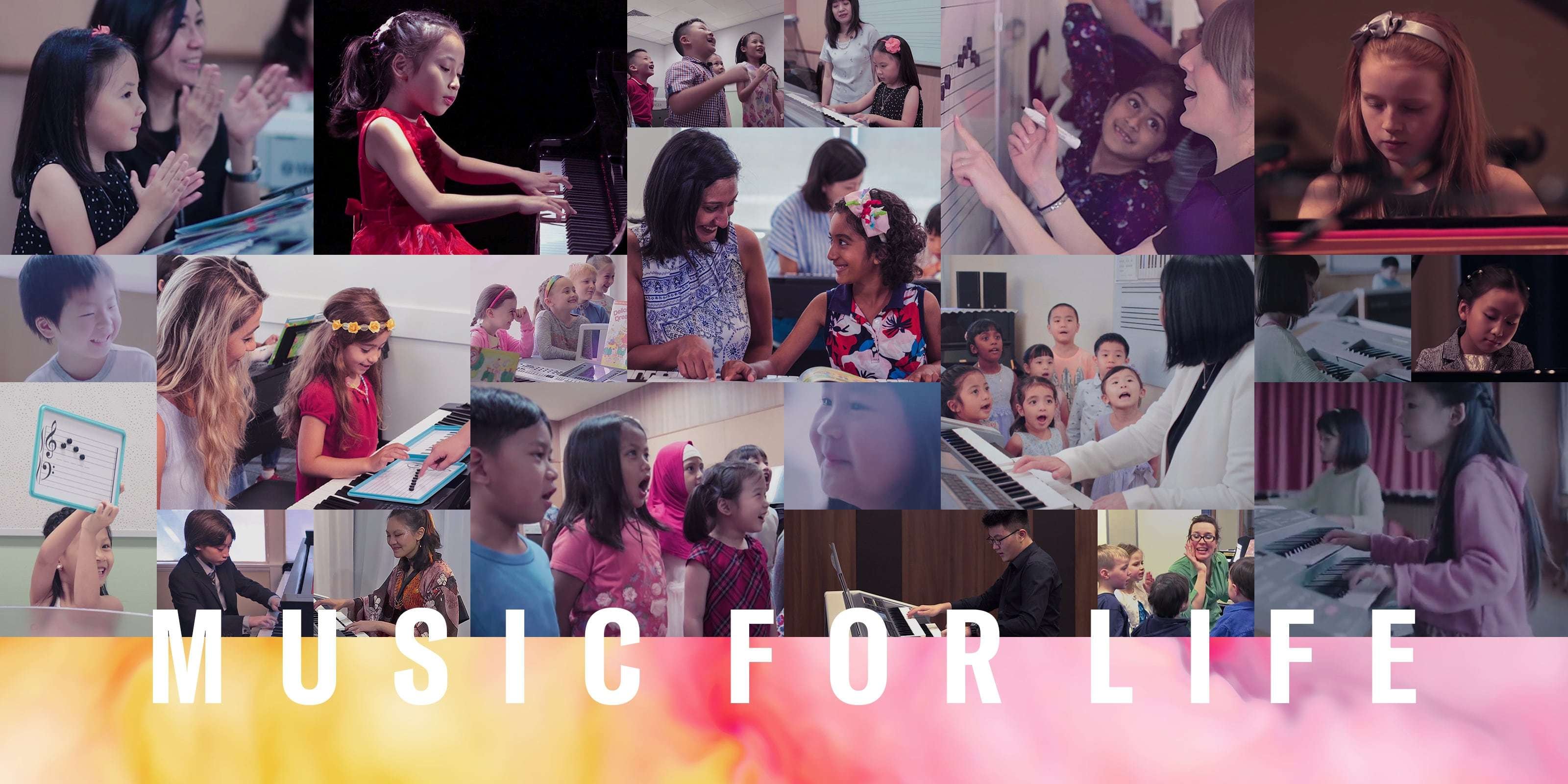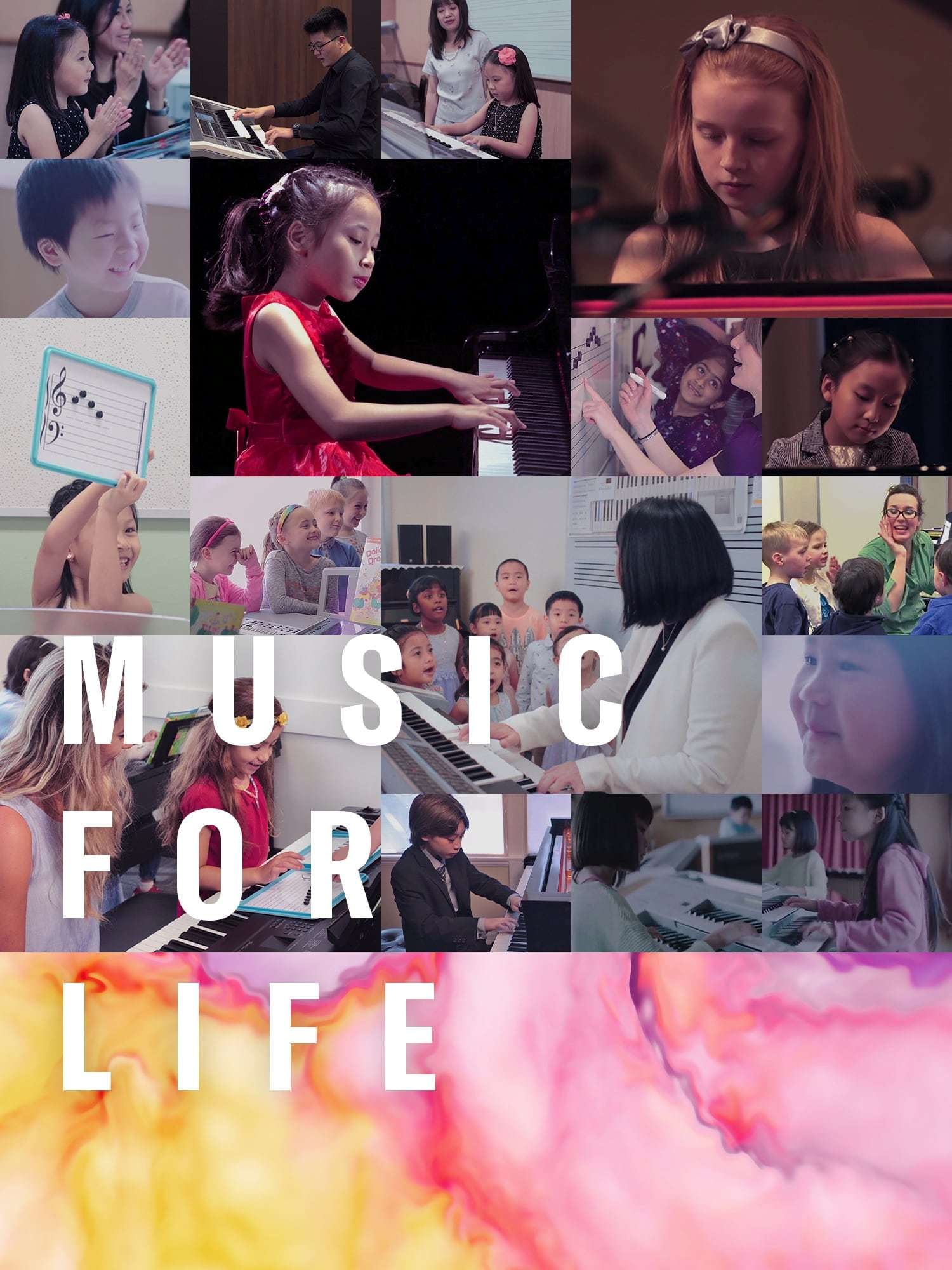Why Yamaha
DO MUSIC LESSONS TEACH CHILDREN SOCIAL SKILLS?
Everyone wants their child to have the collaboration and social skills to build meaningful relationships. When your child attends a Yamaha Music School, you may notice a difference in the way they interact with others.
In our group lessons, your child gets the opportunity to play music in an ensemble. The children play their parts, learning how they intertwine, how to listen and wait for their turn to play, and how to engage in musical dialogue with the other members of the ensemble. Through this experience, they naturally learn how to express themselves in the context of their own parts and how to collaborate with others.
Playing music with friends is a form of teamwork, even in small ensembles. We hope you will give your child this wonderful opportunity to be a member of a team, listening to their friends play and doing their best to play their own part.
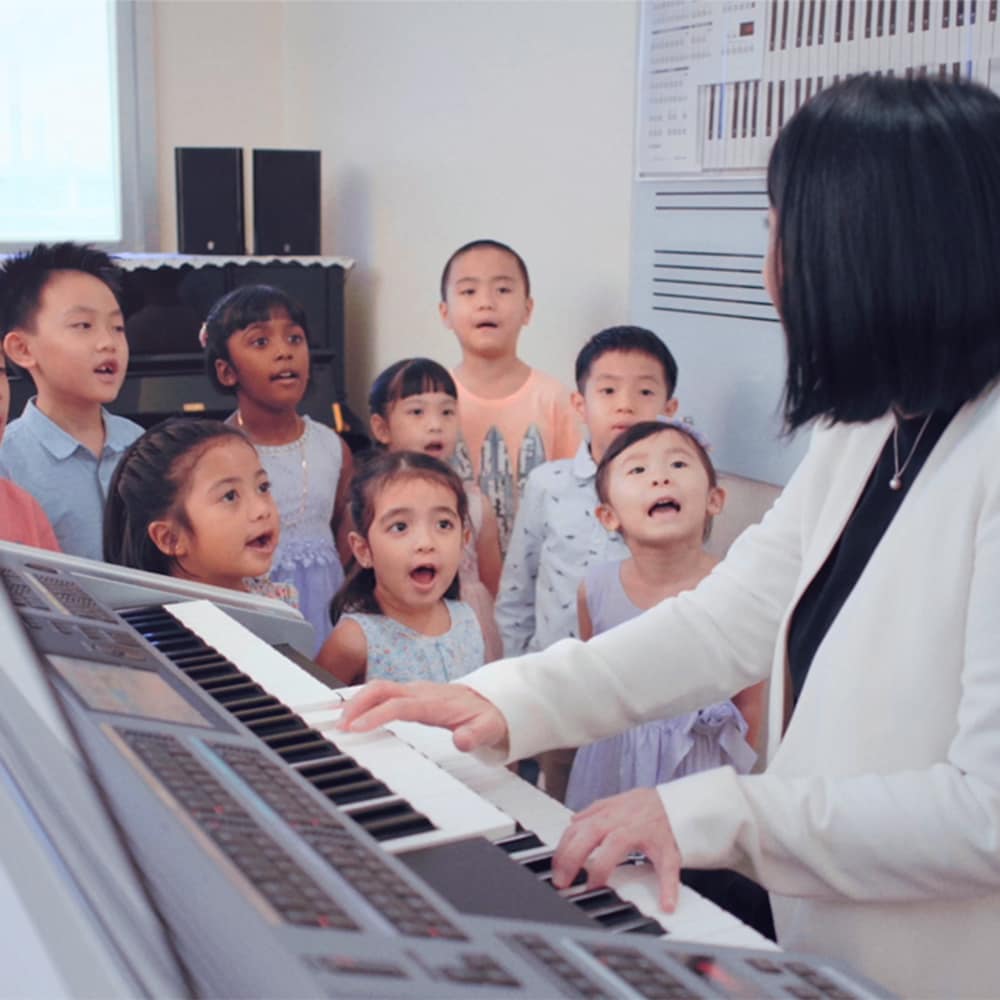

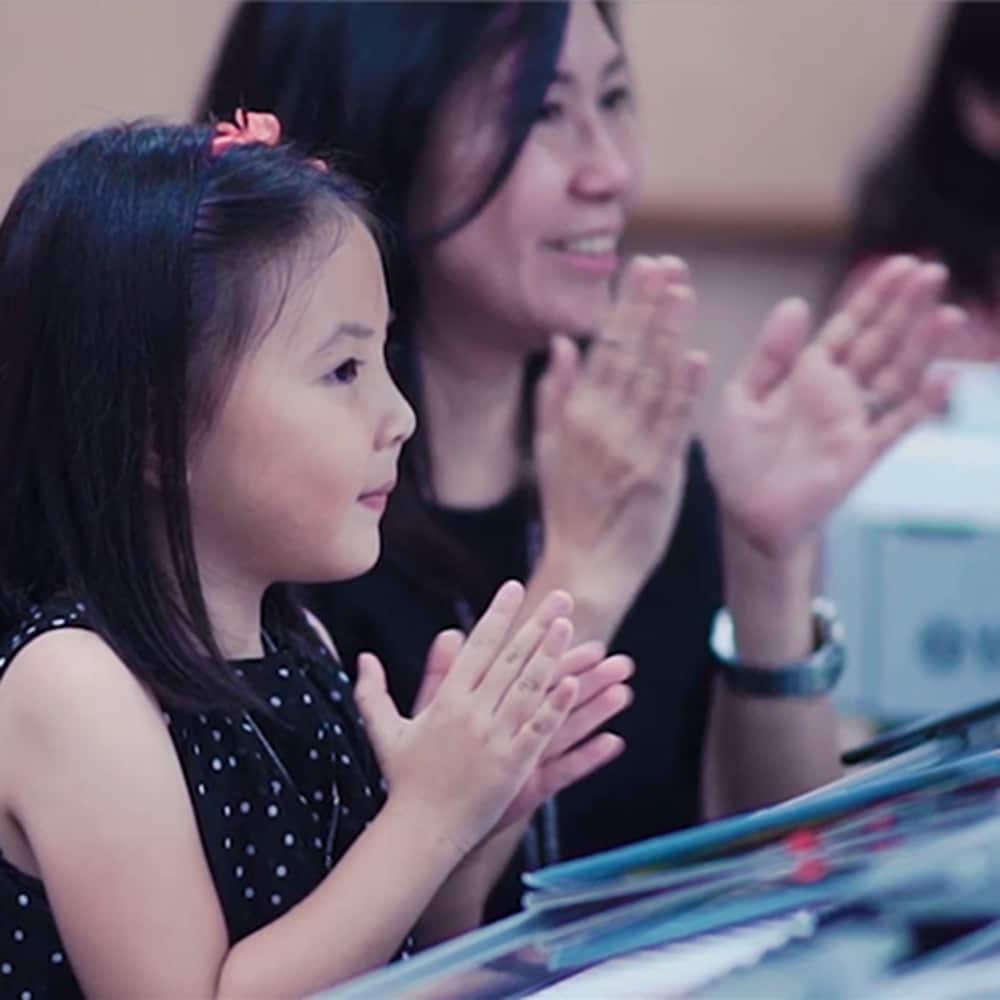

YAMAHA MUSIC SCHOOL LESSONS ENCOURAGE CHILDREN TO DEVELOP PLANNING SKILLS
Everyone wants their child to get into the habit of setting goals and doing what it takes to achieve them. When your child attends a Yamaha Music School, you may notice that they have developed those planning skills somewhere along the way. In group lessons at Yamaha Music Schools, children play in class concerts and regularly share what they are learning in front of their friends.
This motivates them to:
- Practice at home so they are ready for the next class concert
- Play every day to have something worth sharing with others
Basically, they have a desire to achieve these goals, and it naturally drives them to make plans. When they succeed, they are motivated to tackle the next challenge. Before you know it, your child will be setting goals, creating plans, and making progress all on their own, and you’ll feel reassured that a bright future awaits them.
GROUP LESSONS THAT DEVELOP SKILLS FOR THE FUTURE
When playing music with other people, one thing is more important than anything else, even technique and skill: playing together as one. This is true in groups as large as orchestras and as small as ensembles. The concept translates to team sports, too. If there’s one thing children learn in group lessons at Yamaha Music School, it’s this.
We make it a point to teach children to play as one with their classmates in in-class ensembles. When children listen to others play, stay in time by making eye contact with each other when their respective parts begin, and maintain balance as they play, it’s a perfect picture of teamwork.
The singular experience of helping each other, teaching each other, and making music together yields inspiration and stimulation that cannot be found elsewhere. We hope you will give your child this wonderful opportunity to take group lessons and learn the skills they need to build trust-based relationships and accept other people as they are.
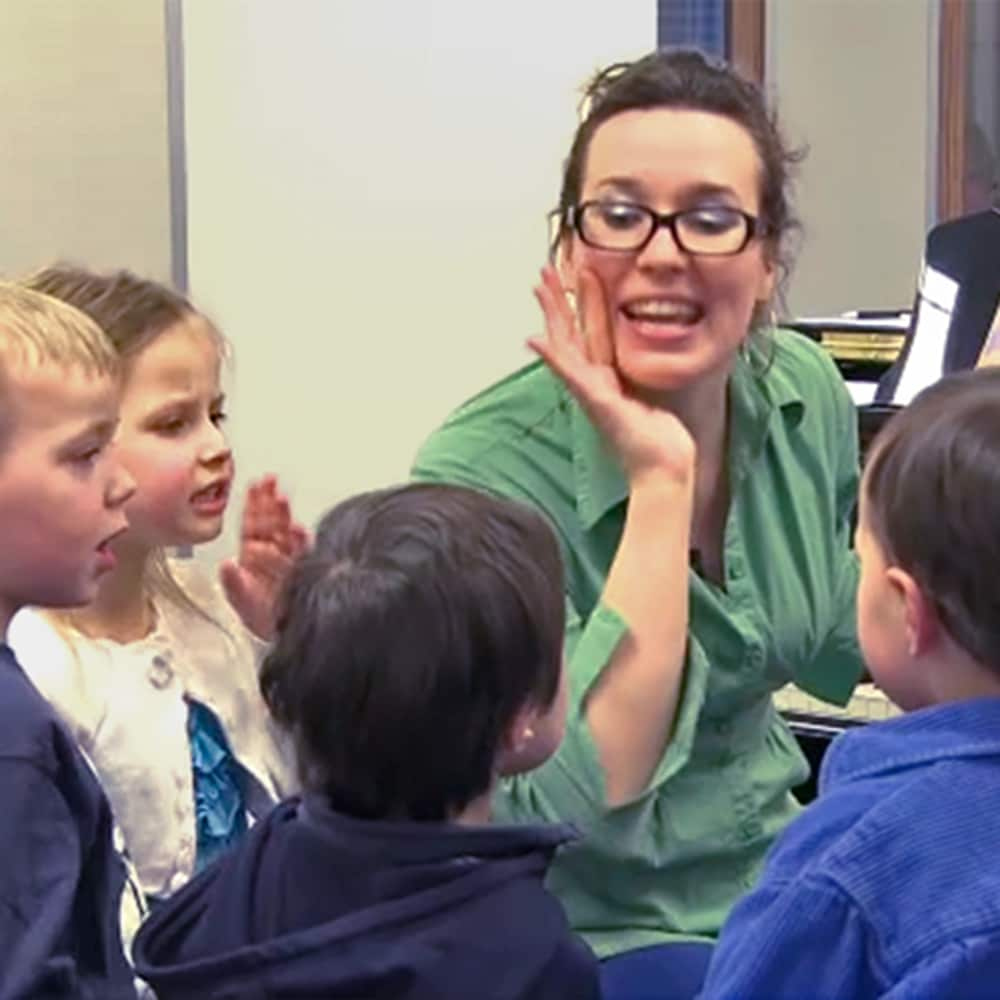

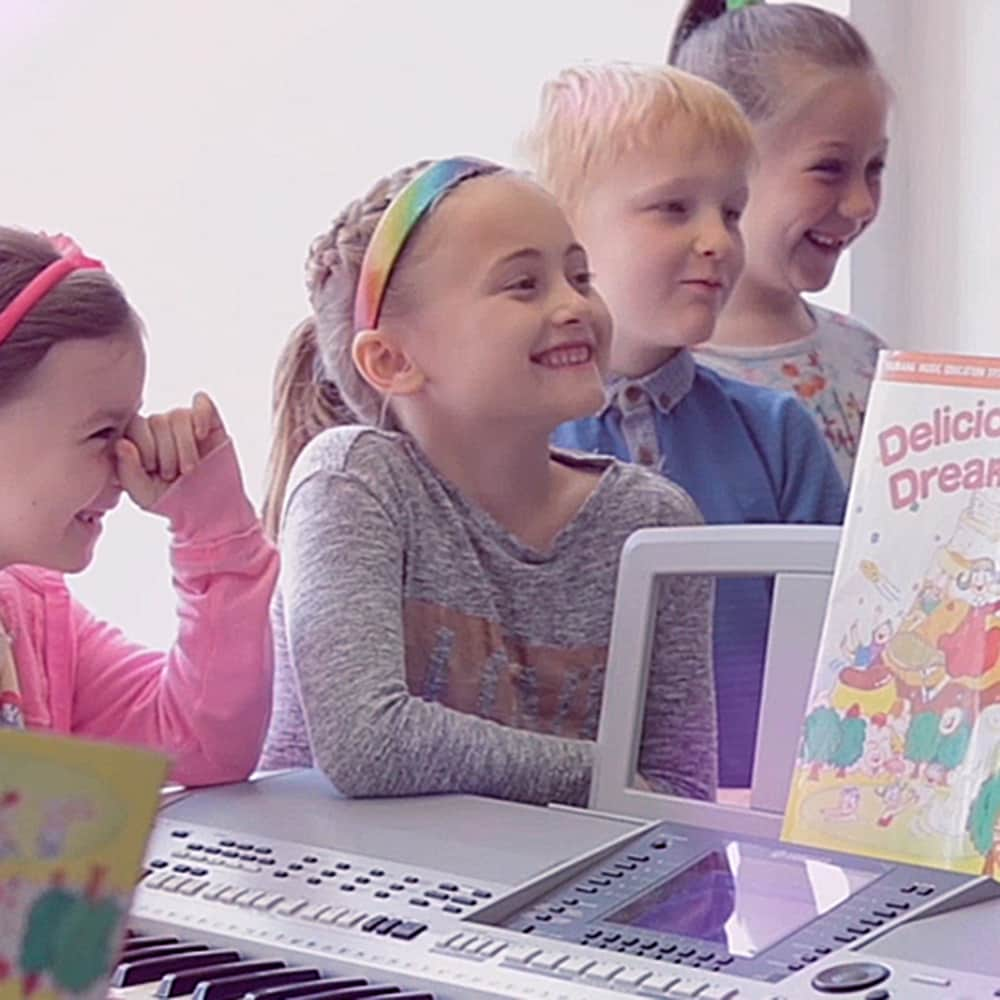

THE SURPRISING TRUTH: LEARNING MUSIC IS LIKE LEARNING A LANGUAGE
Did you know that the language processing parts of your brain are activated when you learn music? Like language, music has pitch and rhythm, but it also has elements that correspond to grammar. Like music, the language we use on a daily basis has accents, intonation, rhythm, and rules of composition.
Studies show that learning music is helpful for learning languages — not only one’s native language, but foreign languages, too! Interestingly enough, many musicians are multilingual. Research has also found that musicians’ brains are quite sensitive to human voices, which of course we use to convey meaning as well as emotion.
Thus, music education helps us develop the valuable skill of interpreting the subtleties of others’ emotions. One of the appeals of music education is that children develop a depth of sensitivity as they enjoy learning about music.
PERFECT TIMING: TAKE THE CHANCE WHEN YOU CAN!
Listening skills develop especially well at ages 4 and 5, and playing skills from ages 6 to 8. However, this does not mean that children are incapable of learning these skills at later ages. Yamaha Music Schools offer a balance between elements of listening and playing in the curriculum for all age groups. This is deliberate—although the benefits of acquiring listening skills at ages 4 and 5 cannot be denied, older children enjoy advantages as well because their comprehension, visual learning skills, and other abilities improve and reinforce each other as they grow.
In our lessons, we start with simple concepts and gradually increase the difficulty to draw out each child’s strengths. This broad exposure to the wonderful art of music from such a young age greatly enriches their sensitivity. Yamaha Music School students take the talents our lessons uncover with them into adulthood—many have blossomed into composers and professional musicians around the world!
Although anything could happen in the future, children have more opportunities if they are able to cultivate an appreciation for music from an early age. Anyone would be pleased to see their child enraptured by music as they grow up!
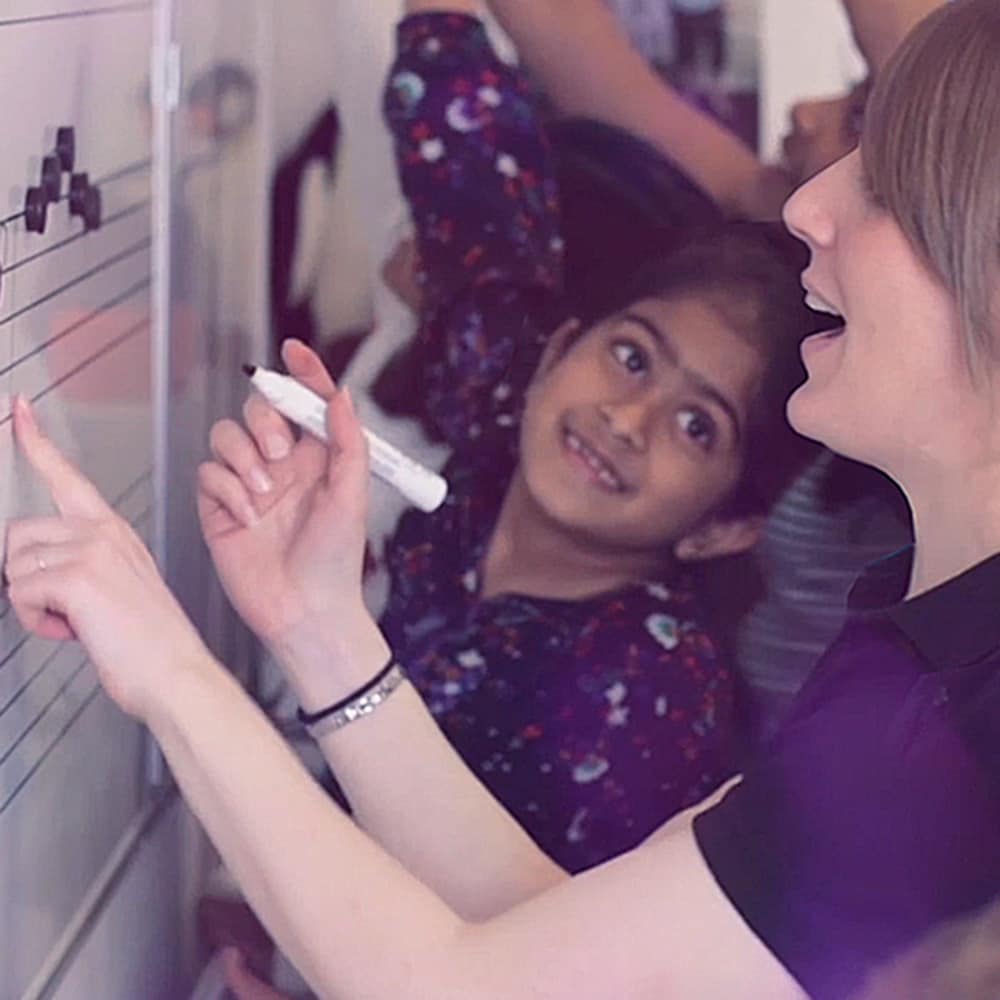

RELATED CONTENTS
- REPORTS
- VIDEOS

